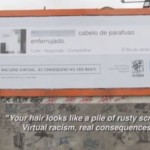 There is a strong sense that a lot of online abuse occurs because the abuser is empowered by both their (often) anonymity, and the distance between them and the victim.
There is a strong sense that a lot of online abuse occurs because the abuser is empowered by both their (often) anonymity, and the distance between them and the victim.
This creates a sense of detachment between their actions and the outcome of them. The question then becomes, how do you stop such annoying individuals form doing their damage?
Attempting to spot the troll
Back in 2013, a service was developed by SMC4 to stop harmful messages being delivered to their intended target by using a smart algorithm to halt them in their tracks.
Users connect up their social media accounts to the service, before then identifying any harmful phrases they wish to have filtered out. Each message sent their way is then put through the filter to test it for indications of abuse, racism, swearing and so on. You can set up different responses for different types of messages, so for instance racism can be handled differently to a complaint.
A Stanford study also used an algorithmic approach to spotting trolls, and the researchers believe that it was proficient enough to detect one in as little as 10 posts.
Naming and shaming
A Brazilian project is taking an altogether different approach to trolls. The project, called Criola aims to tackle trolls as part of their campaign to link online behaviors with real consequences.
The organization has a long history of defending black women’s rights, and their latest effort aims to name and shame online trolls.
The first step is to identify people engaging in troll like behavior on various social media. Once located, the comments are analyzed to geolocate where the user posted them from.
The last step is to then rent out a billboard in the neighborhood of the person, and display their comment for all to see.
Suffice to say, the names and faces of the victims are blurred out so as not to identify them, with the campaign hoping to provoke a public debate about how people behave online, and the consequences of their actions.
It isn’t intended to be a long-term form of lynch mobbing, although it’s easy to see how that could happen, especially as people are empowered to capture comments they think qualify for the campaign and send them to Criola who will create a printable campaign poster for that person to display near them.
The campaign is undoubtedly controversial, and it will be interesting to see how effective it proves, both in raising awareness of online bullying and in changing our behavior.
Do you think it’s a good idea?
I think that's actually a really nice idea. Super stuff.
This is fact that, the names and faces of the victims are blurred out so as not to identify them, with the campaign hoping to provoke a public debate about how people behave online, and the consequences of their actions.
Fantastic idea. I hope shaming campains are conducted in the UK, especially for the anti-muslim bregade. To fight extremists we need to come together, not marginalise people and make them more likely to become radicalised.
Sorry but this seems a complete waste of money to me.
LOL Troll tweets being posted on a billboard is a goal, not a consequence.
Hmm, yes, a rather dark consequence, as the promotion does presume that trolls really give a damn.
Lets see where these 'good intentions' lead.